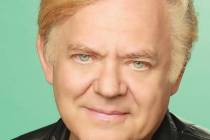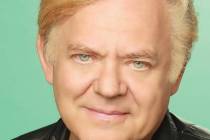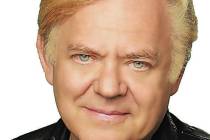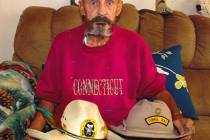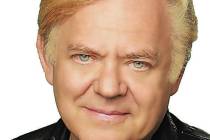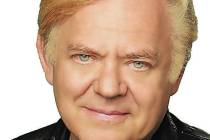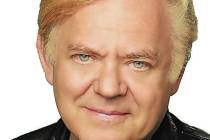Soldiers partner with doctors to battle blindness
Last month, I reported on the U.S. Department of Veterans Affairs teaming up with the Blinded Veterans Association, other government agencies and medical experts in Denver to discuss traumatic brain injuries and their affect on blindness. Several individuals discussed work being done to help veterans who sustained severe head wounds, which can often lead to a decrease in visual function and complete blindness.
This month, I am presenting some additional information gleaned at the convention about how the government is working to help affected veterans.
Dr. Ann McKee, chief neuropathologist of VA Boston Healthcare System, runs a large “brain bank” where she and her staff literally delve into the brains of the deceased, retired NFL players, boxers and veterans to study the effects of traumatic injuries. Recently, her facility received a grant to develop a post-traumatic stress disorder brain bank in which she hopes to “uncover the secrets of PTSD in the veteran.” She said it’s difficult to understand why sometimes there’s substantial denial from affected individuals about the risks of head trauma.
McKee also uses animal models to focus on therapeutics, but human brains are invaluable for her research.
Others in the field praise those veterans who volunteer to help brain research. Dr. Glenn Cockerham, an Air Force veteran, works at the VA in Palo Alto, Calif. The facility is one of four polytrauma centers the VA established in 2005 to treat and study veterans who are just weeks away from having sustained brain injuries.
“It’s a wonderful population to work with. They’re such great people … it’s very rewarding for me to be around such heroes,” Cockerham said.
He said 66 veterans were approached and asked to take part in medical studies about their brain injuries, and only one declined. The 65 wanted to not only help themselves, but they knew that their participation would help future veterans as well.
Lee Goldstein, an associate professor at Boston University School of Medicine and College of Engineering, noted how there are many individuals who are interested enough in the work he and others are doing to study brain injuries, and they are willing to leave their brains to science when they pass on.
“The injuries cover a wide spectrum,” he said. “One of the biggest things is to recognize that they (patients) have a problem. First and foremost, to have the consequences of these injuries recognized … is the first step” in overcoming patient denial.
Then he tries to tailor treatment to the specific individual. He said brain injuries have often been “invisible” because they can’t be picked up with X-rays or other traditional types of imaging. The injuries may be small, but they are devastating to the brain, he said.
“This is a fundamental sea change in the way we look at this disorder,” Goldstein said.
Sean Johnson is a former Army staff sergeant who was blinded while serving in Iraq. Wounded by an enemy mortar, he sustained a brain injury and vision loss and agreed to tell his story to the convention-goers in Denver. His wife and caregiver, Melissa Johnson, said, “We had a lot of issues at first with correct diagnosis of his brain injury and his vision loss, and we also dealt with PTSD as a family. That’s been a huge hurdle for all of us to overcome and learn through that. And through that it’s changed the way we look at things in the world and how we change our attitudes, and how we’re going to adjust moving forward.”
But injuries or not, when asked about the military Sean said, “It’s a good profession and career to go into … you can get a lot of pride serving the country and also you can get benefits from it. You can get your education, you can get money built up. It’s good for a young man or woman.”
That’s the spirit of our armed forces. Love of country trumps all, even vision loss and brain injuries. And through strong medical research and firm dedication to helping veterans, vision loss can sometimes be prevented or at least curtailed. And PTSD may be done away with someday. The cure is always one study away, and progress continues to be made.
Chuck N. Baker is an Army veteran of the Vietnam War and a Purple Heart recipient. Every other Sunday he discusses veterans issues over several Lotus Broadcasting AM radio stations in Southern Nevada.



